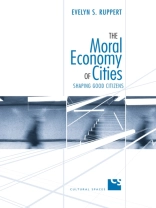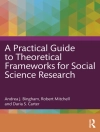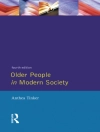What makes a good city? This question has long preoccupied groups interested and involved in the making and remaking of city spaces. In The Moral Economy of Cities, Evelyn S. Ruppert contends that the vision of the ‘good city’ embraced by professionals in the business of city making recognizes the interests of a dominant public, namely middle class consumers, office workers, tourists, and families. This vision stigmatizes certain members of the public like street youth, panhandlers, discount- and low-income shoppers, and the language used to extol the virtues of the good city inherently moralizes social conduct in the city. Using the redevelopment of the Yonge-Dundas intersection in downtown Toronto in the mid-1990s as a case study, Ruppert examines the language of planners, urban designers, architects, and marketing analysts to reveal the extent to which moralization legitimizes these professions in the public eye and buttresses the very projects they produce. Ruppert’s conclusion that economic practices are not free from moral investment encourages the considerable task of re-examining the implications of city planning and development worldwide. The Moral Economy of Cities is mandatory reading for urban studies scholars and practitioners, and their critics.Electronic Format Disclaimer: Images removed at the request of the rights holder.
Evelyn S. Ruppert
Moral Economy of Cities [EPUB ebook]
Shaping Good Citizens
Moral Economy of Cities [EPUB ebook]
Shaping Good Citizens
购买此电子书可免费获赠一本!
语言 英语 ● 格式 EPUB ● 网页 400 ● ISBN 9781442659247 ● 出版者 University of Toronto Press, Scholarly Publishing Division ● 发布时间 2006 ● 下载 3 时 ● 货币 EUR ● ID 6568934 ● 复制保护 Adobe DRM
需要具备DRM功能的电子书阅读器












